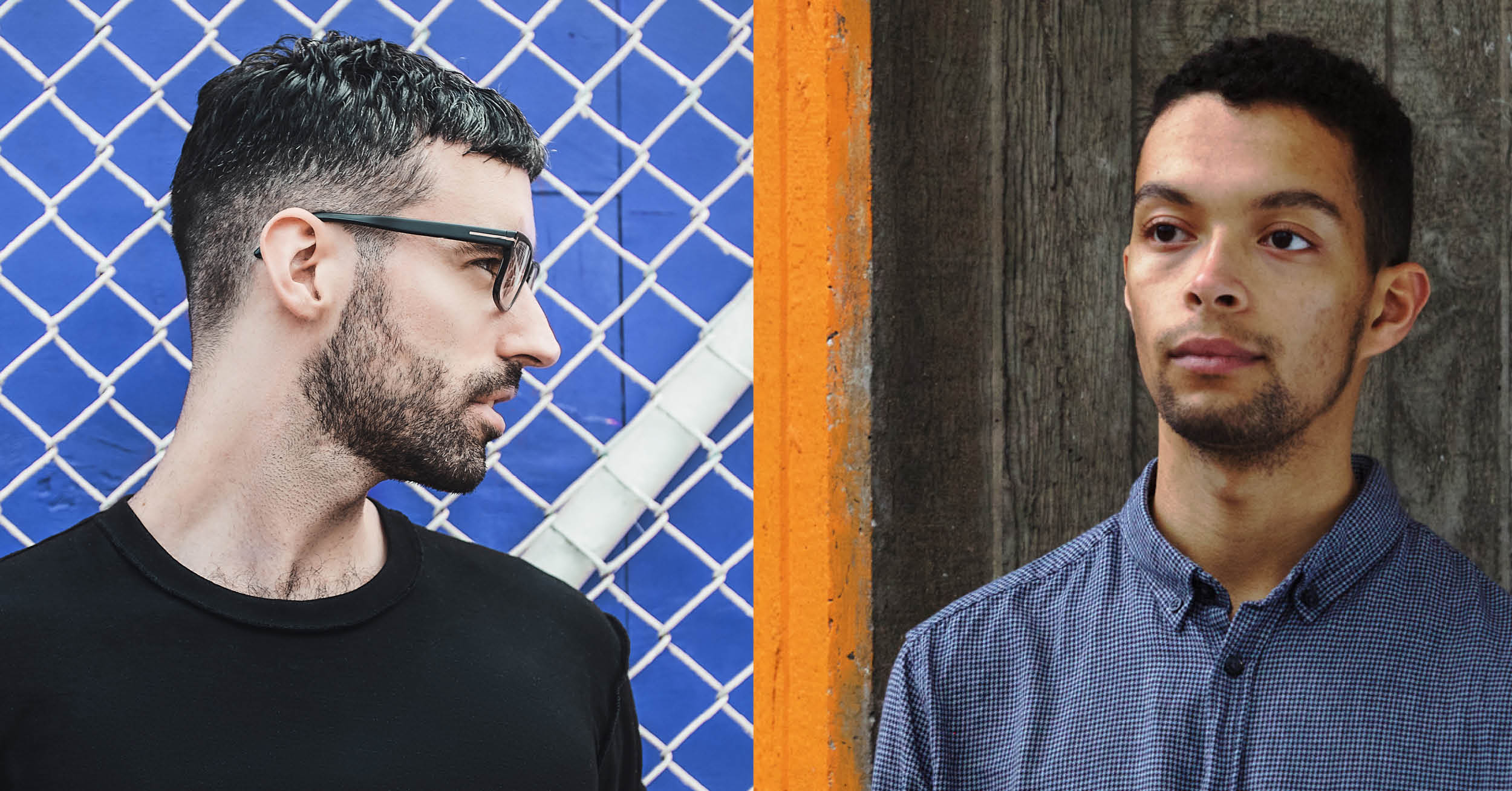There are many parallels between Randomer and Batu’s approach to DJing and production: both represent a new frontier of UK dance music, drawing influence from the jungle, grime, dubstep, and drum and bass sounds of the past, all while paving the way toward an unclassifiable future. Both artists strive to create highly functional club tracks that are difficult to categorize. In accordance with these related trajectories, I decided to loosely focus this interview with the two artists around their respective visions regarding the past and future of dance music.
Interview by Alyce Currier (aka Lychee)
What patterns/paradigms exist in today’s dance music climate that you’re especially eager to shift or break from?
Randomer: None. I adore the patterns of dance music, that’s why I make it. Without patterns, we cannot communicate. I communicate a variety of emotions and physical presence. Certainly I like the idea of taking people to a place sonically they might not have been before.
Batu: Good question. I think there are a lot of producers from the UK who have moved naturally into making music that falls into very established categories, house, techno, whatever… That’s cool, I like that stuff; but I’m more interested in working with people who are operating on the fringes of different styles. Stuff that isn’t quite so easy to pigeon hole.
I generally feel there is space for more experimentation and bold club music. It feels like DJs and producers are happy to play it safe a bit too much at times – I’m guilty of this too, by the way. I want to hear music that challenges me!
To be a bit more positive: what are some of the most exciting things happening in dance music today?
Batu: Well, I’m by no means impartial, but Bristol has a really exciting crop of producers coming through at the minute. Ploy, Bruce, Lurka, Giant Swan to name just a few.
Outside of Bristol stuff… I’m really enjoying the axis of DJs mixing between various styles of carnival-esque stuff, Swing Ting and Hipsters Don’t Dance being the main two I’ve been listening to. The Gqom stuff is great too.
Randomer: There’s so much amazing dance music being made today it’s unbelievable. It makes it so exciting to perform as a DJ. It’s challenging as a producer to stand out amongst such quality though, particularly as I take a lot of my influence sonically from outside the world of electronic music.
How do you draw from and pay respect to past musical styles without getting too caught up in tradition or repeating the past?
Randomer: Repeating the past isn’t a negative thing. Music and dancing are primal and timeless. I don’t think any musician wants to make something unoriginal, the challenge comes because as listeners we all (consciously or not) are striving for familiarity in what we hear.
Batu: I think it’s purely an attitude thing. There’s so much space that’s uncharted, it’s just a matter of pushing yourself to tap into it. It is something that is a constant battle when trying to write functional music.
How much do you think producers and DJs should know about the history and context of the music they’re making or playing?
Batu: It is a really difficult one for me. I think appropriation is very much a double-edged sword, amazing things can happen when people from different perspectives develop their own take on art. This can definitely cause friction, I’m not sure with art that there should be a hierarchy dictating who can and can’t do things.
Inexperienced producers and DJs can tend to be naive to these cultural issues and have a relatively short attention span to different styles. I would hate to think that people coming into a scene with sincere enthusiasm would receive a barrage of hate for not being “educated” enough. Friendly encouragement to learn about what you are referencing is good, but I think it needs to be carefully handled. I mean, we are all appropriating something, right?
Randomer: If you are doing something political with music, then I can see why knowing the context could be important. I think any artist is probably naturally curious about what has come before and why. But I don’t think you should judge an artist by how much they have read. That’s total bollocks. Music exists for me as a transcendence of words, of thinking, it’s physical, emotional connection.
What’s a seminal track or albums that somehow influenced you or served as turning points for you? Can you explain why it was so important?
Batu: Mala – Blue Notez. This track reminds me of discovering dubstep, my first dance music love. I wasn’t initially blown away but I found it so intriguing. I remember analysing this track trying to figure out what was going on, the way the sounds worked together was really new to me. After years of listening to that track it still feels like a mission statement of the kind of energy I want to create with my music. Rhythms, dissonance and bass working together in some kind of warped harmony.
Randomer: I could list a lot of pieces of music that have served as different turning points – because I’ve gone in so many different directions in my interests. But I’m going to concentrate on one in particular. When I was studying music at university, I got totally sick of thinking about music or anything musical, and told this to my classmate. He said to go listen to an artist called Merzbow for some relief. I had never heard noise before, and it totally opened the boundaries of what music was for me. About 4 years later, I was hanging with a friend at his studio playing each other music. I played him Merzbow and we basked in the loud harsh noise. He turned the volume down very low and said, notice how relaxing it sounds like this, almost like water – that was like a second epiphany.
You both studied music — how does that formal knowledge play into your production processes now? How did that education change the way you worked on music?
Randomer: There’s only one of me. I think I probably got stupider when I went to university because I spent a lot of time there partying. In general I love learning though, and I’m always studying more about the craft of music. Music education never changed the way I created because I started to write because of learning the guitar – I’ve always been in education.
Batu: My musical studies were very much sound design based, I know nothing about musical theory. I’m not particularly interested in learning about how melodies and scales work. My course really shaped how I listen to sounds. How to make sounds mimic nature, the quality of your source material, analysing sonics… All this kind of stuff was really changed by my studies.
How has your own music evolved over time? When you look back at your tracks from a year ago, or several years ago, what do you think about them?
Batu: I really don’t know to be honest. I definitely think the new stuff is a lot better! I think i’m someone who is quite obsessed with looking forward, when my tracks have come out I usually feel like that chapter has closed and I want to play new material. It’s also hard for me to ignore the technical side of things. A lot of my old work sounds really cheap now. I’m much happier with where I am sonically at the moment.
Randomer: My music changes with my tastes in sound, and music. I think when I was younger I tried to fit so many different influences it often ended up a mess. As I got more experienced, I learned how to consolidate my ideas and refine them, and it became my own sound.
To get a bit broad: what is the relationship between music and memory for you?
Randomer: Nostalgia obviously plays a huge role. I don’t think I could ever stop listening to drum’n’bass/jungle because of how it connects me so much to my youth and the city where I grew up.
Batu: I don’t really associate music with specific moments, I tend not to remember lyrics either. Generally, the music I’m most attached to comes over years of getting to know something and appreciate the details. That’s the stuff that really means the most to me.
See Randomer and Batu LIVE at Good Life on Friday, September 23th. More info here!


